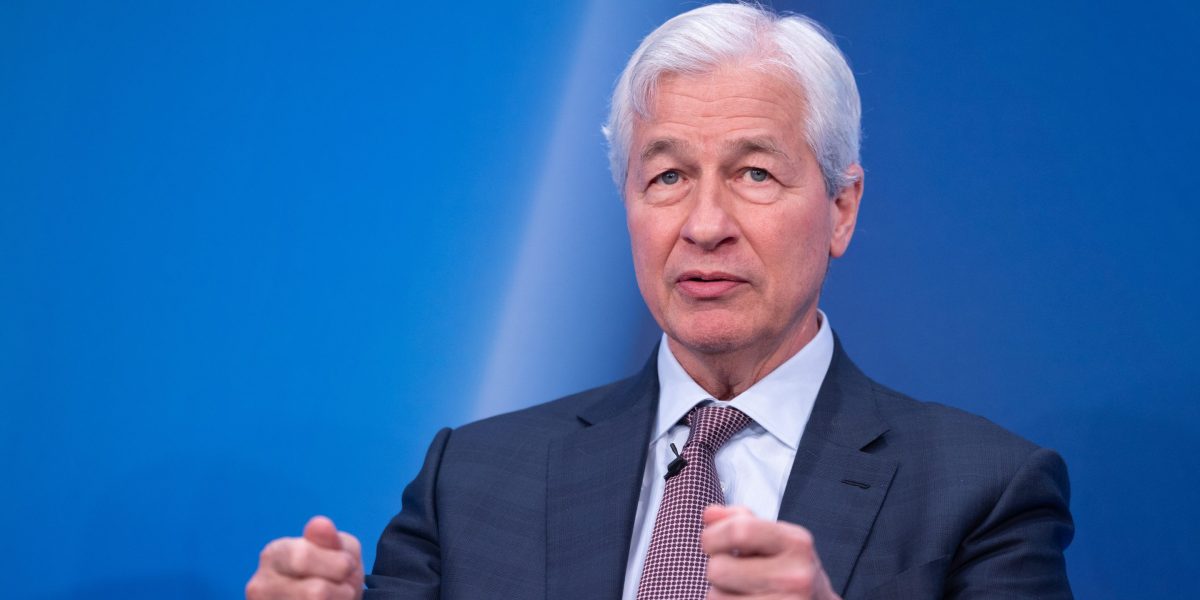America’s public debt is increasingly capturing the attention of economic experts who warn that Uncle Sam’s spending is unsustainable and the economy simply isn‘t growing quickly enough to keep up with future rates of repayments.
Admittedly, administrations over the past five or so years have had to provide huge fiscal stimulus in the face of the pandemic and its aftereffects, but the fact remains that there is a bill to be footed.
Wall Street veteran Dimon has a dual-pronged proposal to bring the deficit back into balance: focus on growing the economy to bring the all-important debt-to-GDP ratio back into line and rebalance the tax system for middle-income families.
Dimon told PBS News in an interview released yesterday that it was “doable” for America to continue spending on the military while reducing its overall debt.
“I would spend the money that helped make [America] a better country,” Dimon said. “So some of it is infrastructure, Earned Income Tax Credits (EITC), military. I would have a competitive international tax system … and then I would maximize growth.”
On a number of these points, Dimon has previously been clear about what he wants to see.
He cites geopolitical tension as the biggest risk to the global economy and, as a result, believes there is a “growing need” to boost military spending.
On EITC, the 68-year-old has also been clear, saying a shake-up would give “much-needed income to the individuals and communities most in need of it.”
“I would pay for it by taxing the wealthy more,” he told the Bipartisan Policy Center in January.
Following these investments into growth, Dimon continued, would be a “little bit of deficit.”
“You would maybe just raise taxes a little bit,” Dimon added. “Like the Warren Buffett type of rule, I would do that.”
What is the ‘Buffett Rule’?
The Buffett Rule states that no household earning more than $1 million annually should pay a smaller share of their income than middle-class families.
It was coined after the Berkshire Hathaway CEO repeatedly pointed out that he pays the same percentage share of income tax as his secretary Debbie Bosanek, inadvertently making her the face of tax inequality in the States.
The issue arises out of the fact that while Buffett, who has a net worth of $138 billion per the Bloomberg Billionaire’s Index, pays a higher share of federal income tax, Bosanek pays a higher share of her income in social security taxes than Buffett does.
In 2024, the social security tax rate for employees is 7.65%—the same as the year prior—and self-employed individuals pay 15.3%.
Social security also has a maximum taxability ceiling of $168,000, meaning individuals earning significantly more don’t pay a higher proportion than those below the threshold.
Studies have also highlighted that federal income tax rates aren’t as equitable as they may appear at first glance.
Last year, the Internal Revenue Service (IRS) released data on the average federal income tax paid per income percentile. The top 1%, for example, paid 26% of their income in federal tax, while the top 5% paid 22.4%. This ratio decreases the further one goes down the income percentiles, with the bottom 50% paying 3.1% in tax.
However, a report produced by the White House later that year, using a more specific set of metrics, found that the tax share paid by the very wealthiest Americans was actually far lower.
The September report revealed America’s 400 wealthiest families actually paid 8.2% of their income in taxes, owing in large part to loopholes in capital gains taxes.
Furthermore, a 2021 study, revised in December by the National Bureau of Economic Research, found that tax evasion among the highest-earning Americans is “understated.”
The researchers wrote: “Accounting for sophisticated evasion increases unreported income of the top 1% of the income distribution in 2006–2013 by 50%, and increases the top 1% fiscal income share by about 1 percentage point.”
The needle has also shifted the opposite way in more recent data.
In its update released this year for the tax year 2021, the IRS reported that the top 1% paid a slightly lower tax rate of 25.9%, while the bottom 50% were taxed more highly at 3.3%.
While a change in tax policy might be a headache for higher-earning Americans, Dimon is optimistic about the impact of his plans on the wider economy. “We would be fine,” he told PBS.

